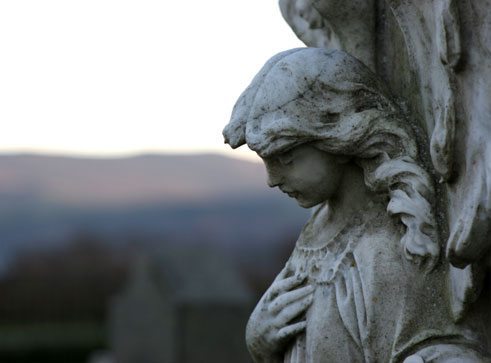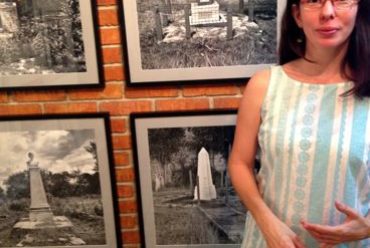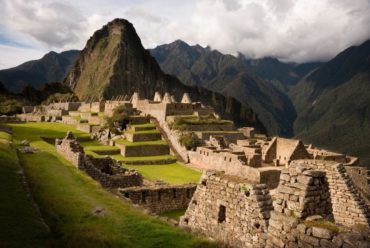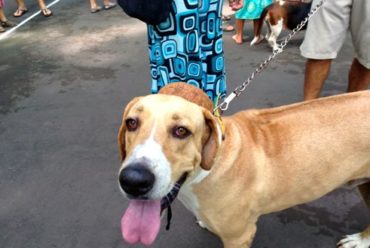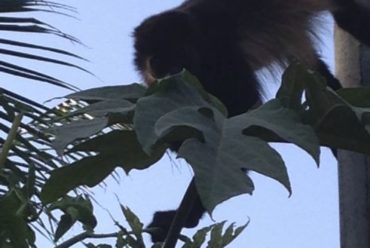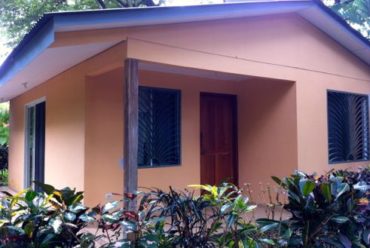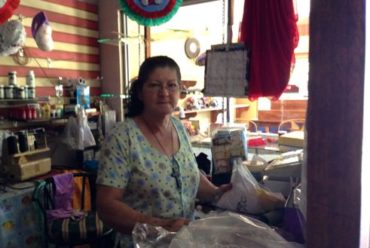The Scenery is Pretty, but You Might Want to Pack an Angel
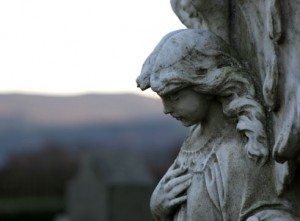 Lake Atitlan, Guatemala, which I visited several years ago, is said to be the most beautiful lake in the world. Pooled at the foot of four volcanoes, the lake is large and clear and deep.
Lake Atitlan, Guatemala, which I visited several years ago, is said to be the most beautiful lake in the world. Pooled at the foot of four volcanoes, the lake is large and clear and deep.
The terrain is stunning but daunting: the only method of transportation between the small villages circling the coast is launch, or a strenuous hike up and around the steep hills. And the locals can be daunting as well. The guidebooks warn you not to wander certain sections of remote paths alone; indeed, I met a German woman named Carmen who broke her arm while running from bandits who surprised her on a small footpath outside the village.
After that, I resolved to follow the guidebook’s recommendations and only travel remotely with a hired guide, such as my planned hike to the top of the San Pedro volcano with a group of other tourists.
I was to be met by launch early in the morning. Somehow, it came and went without me and I was left abandoned on the dock. An hour or so later, Mario, the hotel concierge, appeared and made a few calls. If I took a launch to the village of San Pedro, a man named Domingo would meet me there and take me up the mountain.
As promised, Domingo was waiting for me at the San Pedro dock, struggling to summon up enough English to sufficiently apologize for leaving me at the hotel.
We got in a tuk-tuk, a three-wheeled taxi that are prevalent in every third world country I’ve visited. Domingo began practicing his English on me; I, my Spanish on him, and I began to think that the day might not be a loss altogether. He seemed friendly and sincere in his efforts to make sure I was a satisfied customer.
We negotiated our way around the town, through narrow streets with many turns. After about 15 minutes, we stopped. Before I knew it, Domingo had hopped out and Nicholas, a surly indigenous man, had taken his place. Domingo quickly explained that Nicholas would take me up the mountain and before I knew it, we were off.
It took about 10 minutes for Nicholas to acknowledge me. He began the day by making a bit of an effort to converse, but it was clear Spanish was not his preferred language, as I listened to him speak a local dialect at the San Pedro park entrance.
Regardless, I decided to make the best of things, and followed Nicholas up the mountain.
Soon, I realized I might have made a mistake in not reading the guidebook more carefully about this trek. After the first 30 minutes of climbing straight up hill—no switchbacks to speak of—I asked Nicholas how long the climb would be.
Three to four hours up, he said. About two hours down.
It would be a long day with Nicholas.
I found myself struggling up the terrain. It was painfully apparent that in the two years since I hiked the Incan Trail, I had allowed my cardiac fitness to decline. While I’ve been extremely active in my power yoga practice, I have been neglecting my cardio routine in the year since my favorite gym closed.
Somewhere around hour two, I resolve to get back into shape when I get home.
As I struggled up the mountain, each step more challenging than the next, Nicholas looked like he was on a stroll through Myers Park. I was quickly down to a tank top with rivulets of sweat dripping off my face. It wasn’t until five minutes before we got to the bottom, six hours later, that Nicholas stopped to take off the sweater he wore over his long-sleeved shirt. By the time I got down, even the padded straps on my backpack were wet through and through.
For the first few hours, Nicholas was patient with me, encouraging me to rest when I needed to, stopping to ask about my family in the US, or to point out coffee and corn plants. Soon, however, it became clear that he had lost patience with this slow Gringa.
I’m sure he was pulled away suddenly in a hastily arranged deal to make up for the problems caused by Domingo’s tour company. He had probably been looking forward to a lazy Sunday, perhaps with a lunch of fried plantains, maybe a few games of checkers in the park. I started to get the feeling I had ruined is day.
No worries. He did the same to mine.
The hike was a grueling climb through dense woods, but I kept on because I was convinced there would be an intense pay-off at the top. Would there be a latent crater to view? A scene of all Atitlan laid before me? It was enough to keep me going.
After nearly four hours, we arrived at the summit. Nicholas guided me to a rocky crag, and showed me the view.
It was….clouds.
Because of our late start, the afternoon clouds had already rolled in. All I could see were the tips of two other volcanos peeking through the fluffy mass. It was beautiful, but I began to doubt if it was all worth it, especially since I dreaded the descent. I decided not to warn Nicholas that I am a slow descender, too. I was worried that he’d leave me in disgust.
In a final effort of appeasement, I gave him the brownie and fruit from my lunch. He thanked me, which turned out to be some of the last words he ever spoke to me. The honeymoon was clearly over.
On the trip down, my legs were so wobbly I couldn’t trust them, so I was overly cautious with each step. Nicholas observed my slow going with obvious resentment.
The trip down was in many ways just as grueling as the trip up, in some ways more so because of the cloud of mutual resentment that hung between us. Nicholas raced ahead, casually clearing brush as he went, while I stumbled behind him. I was afraid to ask for a rest at this point, and began making bargains with myself to wait 5 more, then 10 more minutes. Finally, the routine became that whenever I slipped and fell on my behind, that was my cue to sit and rest for a few minutes.
Not once did Nicholas offer to help me up or aid me across a tight spot.
I began walking even slower just to spite him.
We passed the coffee plants and dried cornfields where, when we were still talking, Nicholas struggled to give me information I could understand. That seemed years ago, when our relationship was still new and full of wonder.
Finally, after two hours, we reached the bottom of the hike, at the park entrance where we began. This was where the tuk-tuk had dropped us off six hours before. I looked around for a means of conveyance and tried to ask Nicholas how we’d be returning to the city, a steep four miles or so below. But he was already saying goodbye. I stopped him to ironically give him a tip, sure that either someone was coming to get me, or at worse, he’d be escorting me down to town where I would catch a launch to my village and hotel.
But no, he disappeared down the road before I knew what was happening. I was alone, on a deserted road in the Guatemalan countryside, armed only with my hiking stick.
I could think of nothing but Carmen and her armed bandits.
I started the long walk down the mountain. My legs were shaking, and I was covered in mud and wet with sweat.
I began to rehearse how to use my stick as a weapon and to think of all threatening words I knew in Spanish.
The sky was darkening. I began to cry.
Then, my own little Central American miracle occurred.
I’m not one to pray too often. I meditate on things a lot and believe I have communication with a higher power in my own way; but I never pray for a parking space, for instance.
That day I said out loud, “I wish God would send me an angel right now.”
Not sixty seconds later I heard the chug of an ATV behind me. I figured it’s either the bandits or my angel.
It turned out to be two policemen, who were alarmed that I was walking along by myself. I hopped on the back of the ATV, and they drove me down the mountain to the dock. I caught the last launch just in time.
If I had been left to walk, I would have been sleeping the night in San Pedro, assuming I made it down the mountain alive at all.
As I was riding the cobbled streets holding tight to the back of the ATV, I thought about my luck that the cops had passed by.
Then I thought about my wish for an angel, and smiled. It reminded me of that story that preachers like to tell about the man on the roof during a flood, praying for God to save him. Two men on a boat row by, but he sends them away, sure in his faith that God will come through. Then another boat, and another and finally a helicopter. He sends them all away.
When he gets to heaven he asks God why he didn’t come through. “I sent you three boats and a helicopter,” God says.
It’s almost enough to believe in God all the time, not just when it’s convenient, like when he’s saving your life in a third world country.

